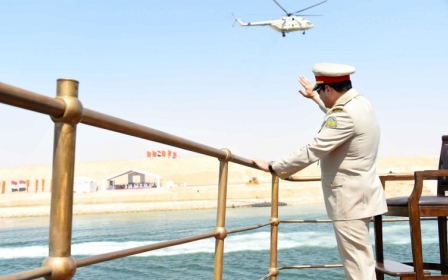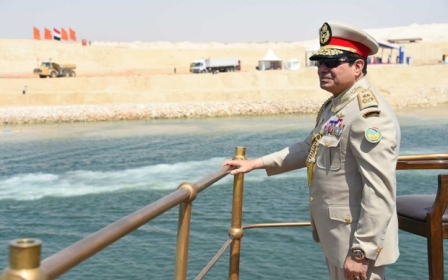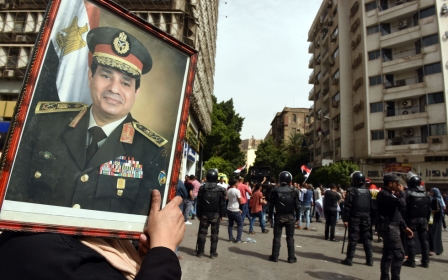Egypt agrees $12bn IMF loan for 'urgent' economic problems
Egypt has reached an initial agreement with the International Monetary Fund for $12bn in funding over three years, the fund said on Thursday.
The Egyptian government hopes the deal will provide a lifeline amid a dollar shortage, dwindling foreign reserves and an economy battered by years of unrest.
The agreement, which will have to be ratified by the IMF and Egyptian authorities, will require Cairo to undertake economic reforms.
"Egypt is a strong country with great potential but it has some problems that need to be fixed urgently," a statement from the fund said quoting the head of its delegation to Egypt, Chris Jarvis.
Jarvis said in a news conference that the IMF was looking to Egypt's parliament to pass a value added tax law.
The IMF's extended fund facility is aimed at countries with payment imbalances and tepid growth to aid structural reforms, according to the fund's website.
Analysts have said the IMF also pushed for a more flexible exchange rate for the Egyptian pound, which the government has been propping up amid capital controls.
The shortage has affected imports and created a flourishing black market trade that the government fought unsuccessfully.
Jarvis said the goal was to have no foreign currency shortage and to create a "balance between supply and demand".
"The central bank is progressing on exchange rate policy, the government has its program, the budget was approved in June, the VAT is in parliament...the government's fuel subsidy reform program continues to unfold," Jarvis said.
Egypt's central bank chief, Tarek Amer, said the IMF deal would boost confidence in Egypt's reform programme.
The deal "is a certificate that says the programme is serious," he said. "We ask citizens to have trust and stand behind us."
President Abdel Fattah al-Sisi has been preparing public opinion for the economic reform measures, including further subsidy cuts.
Although the funding is spread out over three years, the IMF will be looking for a quick implementation of the reform measures.
"The IMF would like to see change right now, not delayed," said Angus Blair, president of the economy think tank Signet.
Egypt has been in tentative negotiations for an IMF loan since the removal of president Hosni Mubarak in a 2011 uprising that set off years of political turmoil culminating in the military overthrow of his Islamist successor two years later.
Mohamed Morsi's removal in 2013 unleashed a bloody police crackdown on the Muslim Brotherhood and militant attacks that have affected tourism, a key dollar earner for Egypt.
With tourist revenues and foreign remittances down, the country's foreign reserves have fallen to $15.5bn.
Middle East Eye propose une couverture et une analyse indépendantes et incomparables du Moyen-Orient, de l’Afrique du Nord et d’autres régions du monde. Pour en savoir plus sur la reprise de ce contenu et les frais qui s’appliquent, veuillez remplir ce formulaire [en anglais]. Pour en savoir plus sur MEE, cliquez ici [en anglais].




